Last Updated on September 18, 2023 by Kirsten Raccuia
Moving overseas has its challenges and its rewards. But don’t just take it from me. I’ve asked some of my expat blogger friends to give me their best tips about how to be an expat.
There is so much crap advice out there now. I want this blog post to help educate and ease any of the “should I or shouldn’t I take this leap,” thoughts. I know it’s a big decision but hearing from others that have done it can make the all the difference.
How to Be an Expat: Things to Know Before You Go
This section of tips is all about planning, organizing, and researching. It’s the essentials.
1. How to be an Expat in Playa del Carmen, Mexico
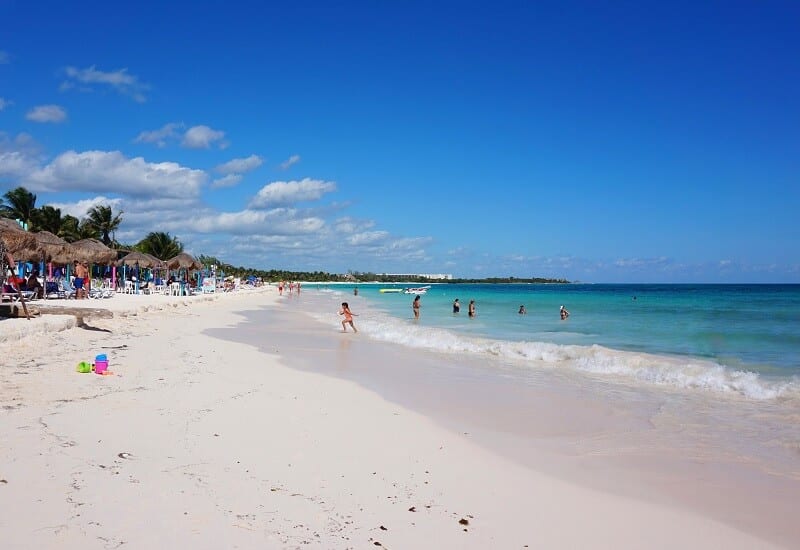
Contributed by Allison from Viva La Travelista
Making the decision to move to Playa del Carmen, Mexico, was definitely not an easy one. It had always been my dream to live abroad in a Spanish speaking country, but leaving the modern conveniences of life in the United States was still very daunting.
It requires a lot of research to determine everything you’ll need to move abroad and get settled in a new place. This includes checking visa requirements, determining your best credit card or banking options, researching health insurance, buying an unlocked cell phone, and even just brushing up on your language skills.
Finding Your Home in Your New Home
Another essential thing you’ll need to do is secure housing. When looking for accommodation in Playa del Carmen, the best place to look is Facebook Marketplace. It’s where you can get a feel for the types of housing available, as well as determine your budget and preferred neighborhood. If it’s your first time to Playa del Carmen, I would recommend booking an Airbnb or hotel for the first few days. Online ads can sometimes be deceiving. It’s best to actually view the apartment and neighborhood in person before committing to a long-term contract.
Now that I’ve been an expat in Mexico for over a year, I can’t imagine returning to the United States anytime soon. One of the things I wish I had done sooner was to become more active in the local coworking spaces including Nest, Selina, and Bunker. Playa del Carmen has a huge community of expats and digital nomads, and it’s very easy to make friends and join meetups by interacting in their Facebook and WhatsApp groups.
Once you get settled, you’ll get to enjoy the vibrant culture, hospitable people, beautiful beaches, and low cost of living, all of which make Mexico such an amazing place to live.
2. Becoming an Expat and a Traveler – Even When it Feels Impossible
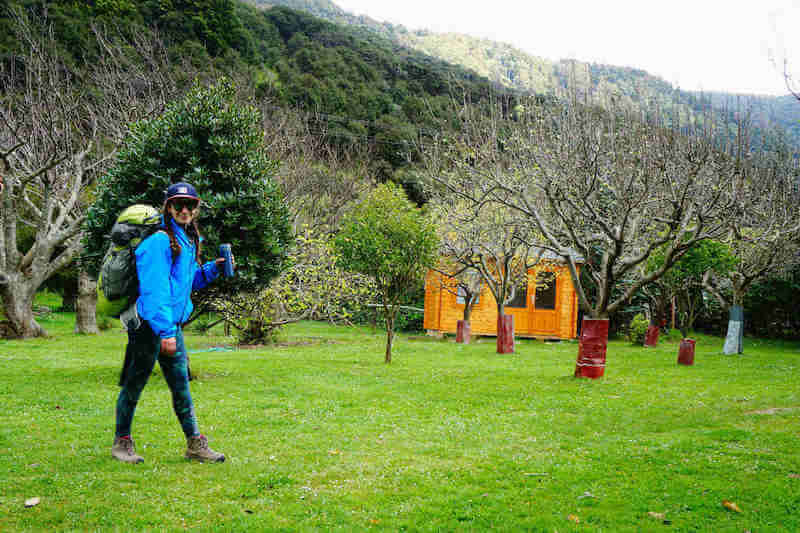
Contributed by Martina from The Global Curious
I always dreamed of traveling the world, moving abroad, and experiencing life overseas. But in all honesty, I thought I was never going to actually do it. I remember waking up in the middle of the night to research places to go with an Argentinian passport and feeling my heart sink because everything just seemed so unattainable.
By the time I was 24 my life was well underway. I was working on retail, had a tertiary degree, a boyfriend, and had left my parent’s house long ago. But I could still sense the urge from time to time to ‘set free’ and see the world.
It felt like missing out on my own life, but I didn’t know anyone that had moved abroad for the sake of it, so…maybe I was mistaken for wanting this?
When I was 25 though, something changed. I was able to truly connect with this goal and see beyond my present reality.
A Life-Changing Decision
I remember the day I went home and told my partner at the time: “I’ve made a decision, we are going on a trip to Europe.” I didn’t know it back then -this was 7 years ago- but I was setting in motion events that would change the course of our lives forever.
We went on a 2-months trip to Europe and half-way through we decided not to come back -boldest move ever! We moved to Denmark on Working Holiday visas and later on to New Zealand. Since then I’ve had another Working Holiday, a partner visa, got Residency, spent 6 months in Italy doing my Italian Citizenship and traveled to over 20 countries.
The main skill I’ve learned in all these years is to appreciate this path fully. Looking back, I realize I’ve achieved all the things I believed were impossible. I do my best to stay connected to that feeling, even -and more so- when life is not all rainbows and unicorns. What I’d say to anyone considering big changes like these is: plan, prepare, trust, commit to your project…and enjoy the ride!
3. Tips for Moving Abroad with your Pets

Contributed by Candy from Boogie the Pug
When I moved to Brazil with my partner, we had three very special additions to bring with us: our two dogs and cat. We’re avid travelers, and usually have at least one pet with us, but traveling with three, and moving to a different country… was a whole different ballgame.
Turns out, if you’ve traveled with one pet, then traveling with three is not that much harder. It required what all international moves require: plenty of planning, organization, and time.
Planning:
Make lists and get your ducks in a row before moving any moves. Look up country entry requirements, airline requirements if you’re flying, and your pet’s health records. Make a list of what important items you’ll need to bring with you, which should include any item you won’t be able to get easily in your destination country (medications, etc). Then come pet-friendly housing options, budgets, and more.
Organization:
Organization is essential if you want to minimize stress and maximize efficiency. I make lists and keep tabs, but it’s also great to create a budget and timeline. Keeping track of things will ensure that you don’t forget or miss a step.
Time:
Give yourself plenty of time when making a big move. In the case of pets, be sure you have all of the necessary vaccinations and treatments. Having the time to research transportation methods, entry requirements, and housing (especially for multiple pets and different species) will require time and patience.
4. How to Be an Expat in the Big Apple

Contributed by James from Travel Collecting
I grew up in Australia, though have lived abroad most of my adult life. Most recently, I moved to New York City. Getting a work visa in the United States is easier for Australians because we can get an E3 visa, which is easier than a regular work visa. However, there are still important things to know.
Three tips are:
(1) I got a job from Australia, but many people may come to the US to try and find a job here. This is technically not allowed, because if you enter the US on a tourist visa or ESTA visa waiver, you should be coming for tourism. IF you do this, make sure there is no evidence in your bags or on social media that you intend to try and find a job.
(2) When you have a job and enter the US, the first thing you will want to do is get a social security number (SSN). Without it, you won’t be able to get paid. The social security office opens early (7:30 am, I think). Get there early or you will be there for hours. Then commit your SSN to memory and don’t lose your original card.
(3) Apartments are rented from the beginning of the month. To give yourself time to find a good apartment, sublet for a while. This means you rent from the official renter and don’t need to sign anything. When you are ready to find an apartment of your own, go hunting with your bank information, references and a check in hand. If you find something you like, snap it up straight away. It likely won’t be available tomorrow.
New York isn’t always the easiest place to live but it’s totally worth it.
5. Maybe Malta
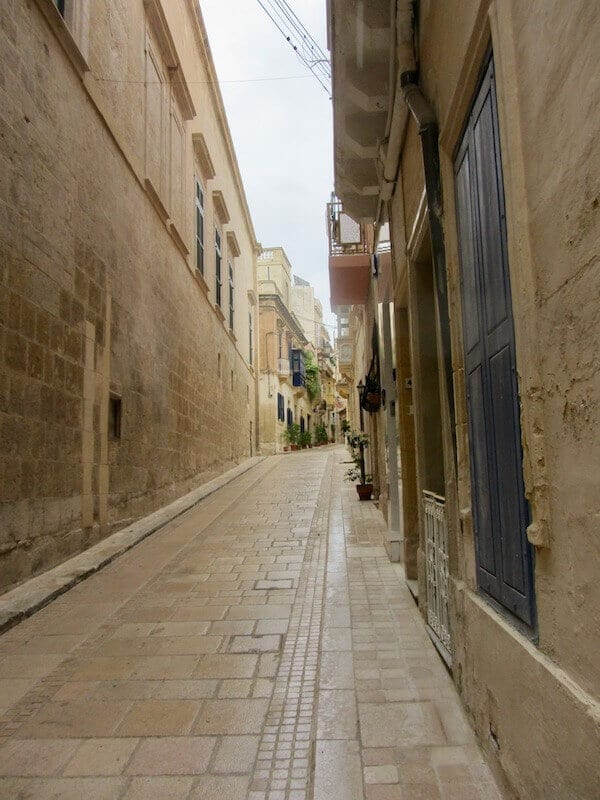
Contributed by Mario from Rest and Recuperation
Malta is one of the best destinations in the Mediterranean for expats. Indeed, foreigners are every year more and more, contributing to increasing the multicultural aspect of the Maltese society.
One of the main reasons why Malta attracts many migrants is its language: English is an official one, alongside Maltese. Even better for Italians, as until some decades ago, the only tv channels were the Italian ones, so that most of the population also speak that language.
Despite being already densely populated, Malta has some great job opportunities. Due to a favourable taxation system, many service companies relocated there, needing foreign staff. The financial and gambling sectors are the most popular. There is a great turn over of employees so that there are almost always openings.
The large expat community is concentrated in the northeastern side of the island, in the area that goes from the capital Valletta to Saint Julian’s. If you are planning to move to Malta, it is worth looking for a house in-between these two towns, maybe spending a bit more, but being close to all amenities, jobs, and cultural events. Unfortunately, but obviously, it is one of the most expensive areas of the island. A room in a shared flat might be around 500€, a one-bedroom flat 700€.
The good news is that many other expenses are cheaper compared to accommodation. The grocery will not be as expensive and even social life, restaurants and bars, are accessible.
6. How to Make London a Home

Contributed by Clotilde from A Princess Travelling with Twins
British culture is fascinating, and if on the one hand, it seems full of rules, if they are followed step by step help to facilitate the moving process.
First of all, open a bank account
When you arrive If you already have a job in a well-known company, have a letter sent to you by the Human Resources department stating that you are employed by them and with the address of your temporary accommodation. For some banks (like HSBC) this is enough.
Find a home
When you have a bank account you will be able to rent a house (most of the agencies will ask for this).
Many people find an apartment the day after arriving in London, but this is rarely ideal. If you have no alternatives, but you are not sure of the choice you are about to make, you can look in the ads for temporary accommodation, or ask to sign a contract that will give you the opportunity to terminate it after 6 months.
This way you will have time to explore the different areas of London, get used to the costs, evaluate the transfer times, and find your ideal house.
National Insurance
Finally, you can obtain your National Insurance number. This step is quite simple, just call the National Insurance Number application line. They will give you an appointment, that you will have to attend personally, and then you will receive your card by post. Getting the National insurance number is really easy for everybody, of course, the prerequisite is that people not from the EU have a legal Visa that allows them to live/work/study in the country.
This step is important because until you get the National Insurance number you will be taxed on an emergency tax code, you could then pay more taxes than necessary (don’t worry though, the British Tax system will refund you at the end of the year if you pay too much)
These are the fundamental steps when you arrive in London, but once the bureaucracy is over you will only have to immerse yourself in the local culture.
Be surprised how soon pubs will become your second living-room where you can meet up with friends, colleagues, or strangers. Try all the cuisines of the world in the space of a few kilometers, and when the summer comes, join the thousands of people using every piece of land to spread out a towel and soak up the long-awaited sunbeams!
Want more reading on this topic? Of course you do! How about… Expat Life: How to be a Happy Expat, or Life as an Expat: What You Need to Know, and don’t forget Pros (and Cons) of Being an Expatriate in Malaysia.
How to Be an Expat: After the Move
This section of tips is about settling in, feeling good about your decision, and getting passed those maddening days. And you will have those days. I mean, surely you had them in your home country so why would your adopted country be any different?
7. Do’s and Dont’s for Newbie Expats
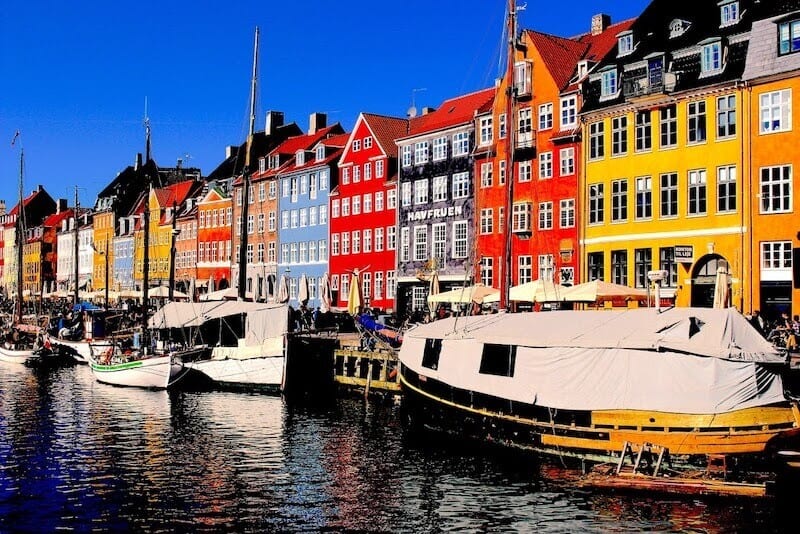
Contributed by Derek from Robe-trotting
Moving to another country can be an overwhelming experience for anyone. Still, expat communities exist all over the globe in cities big and small. That’s because there are a lot of perks and advantages that you gain from living abroad. Besides professional opportunities, expats learn to live in another culture and often get to travel and see new places in an immersive way.
There are some challenges to leaving your home country and living abroad. One way to avoid these challenges and get used to your new environment is to avoid traveling and establish a routine in your first few months. So much happens in the first 30 days of living abroad. You have to acclimate to a new country and culture while also experiencing a new job, finding housing and learning how to do daily tasks.
From Philly to Copenhagen
When my partner and I moved to Copenhagen, Denmark from Philadelphia, we didn’t understand the language. This made operating our stove and washing machine difficult as well as navigating the public transit system. Grocery shopping in another language was also difficult. It took time to overcome these small inconveniences. Within a month or two we were able to laugh about our early missteps.
Early in our move, we concentrated on meeting people and making friends. This was also crucial to our adaptation and helped us to learn about life in Copenhagen. Having a network of other expats and local Danes made life in Denmark much easier to grasp.
Learning about your new home is only really possible if you resist the urge to travel around and explore in the first 30 days – maybe even 90 days. You need to fall into a routine because you’re not on holiday, it’s your new life. Explore your city, learn how things work, try some local food or a cultural festival going on in town. The other destinations that are now much closer for you will still be there in months 3 and 4. For the first couple of months in your new home, make it your job to learn as much as you can about the city you’ve adopted. You’ll be fine, and you should be proud of your bravery to pick up and live somewhere else. Not many people do it, so take a deep breath, smile, and give yourself a pat on the back.
8. “Not every day is going to be amazing and that’s normal.”

Contributed by Diane from Oui in France
Remind yourself that expat life is different for everyone. Did you move alone, with a family, for a job, for love, to study?
Two people living in the same country as expats won’t have the same experience, so try not to compare yourself to everyone else. There’s no one “right” expat experience to have, so do what feels right for you and don’t be afraid to step out of your comfort zone.
Along with that, drop any preconceived notions you have about a place and its people and just take each day as it comes. Don’t try too hard to make your time abroad into something that doesn’t feel right. Acknowledge your new home for what it is and then set out to find your place in it by writing your own story.
Also, be sure to not get bogged down by the bad days and little missteps along that way. Not every day is going to be amazing and that’s normal. You’re still alive and safe and able to try again.
Really, it doesn’t matter if you embarrassed yourself at a café last night when you confused some vocabulary or had a bad day thanks to a cultural faux pas you made at work. Just let all of that pass and when you wake up the next day, give yourself a clean slate without letting yesterday’s troubles influence today. You get another chance to make progress and to prove to yourself that you belong exactly where you are.
9. How to Find Your Tribe

Contributed by Mar from Once in a Lifetime Journey
As a long term expat who has lived abroad for almost 14 years and in three cities, I have two pieces of advice to those moving abroad: build a local support network and explore the country you live in.
One of the most dangerous feelings when being an expat is that of loneliness, and the best way to fight it is by making friends, be it local or expat.
Through the years, those who didn’t have a local support network were the ones who would want to return home soonest or made the least of their time abroad. It is difficult when you are in a new environment to feel at home, and having a local group of people you can explore your new home and culture with can make a world of a difference.
Ways to Find Your Community
To find them, think of joining local groups for the types of hobbies you enjoy (eg. hiking groups, crafts, dancing, etc.), this will give you the chance to interact and mingle while also being able to continue practising the things you love. If there isn’t a specific type of activity you want to participate in, simply join Internations which is an expat organisation, or the local Meet-up groups for the topics you are interested in.
Thinking outside the box and as strange as it may sound, Tinder also has an option for friendship in case you are not looking for relationships, which is handy to make friends.
If you have been an expat for a while, chances are you will also have friends who with friends who live in your new home and can introduce you to their friends. Particularly in expat-heavy places such as Singapore or Dubai, the expat community tends to be welcoming and open to new arrivals.
Lastly, your embassy might be a place to find information about local communities of your peer citizens so that you can feel a bit closer to home. I never made it a point to meet local Spanish or Catalan when living abroad, but I know that for a lot of my friends, being able to share traditions or to speak their mother tongue was a great way to fight nostalgia and home-sickness. Sometimes all it takes is a warm paella around a Sunday brunch to starve your home cravings!
Explore Your New Backyard
Secondly, exploring your new home will also help build a sense of community and belonging.
I have made it a point to do this in Singapore, by visiting not only famous tourist attractions such as Gardens by the Bay but also the lesser-known ones, but it remains one of my biggest moving abroad regrets from my time in Dubai.
While the city was not as friendly a place to live when I was there as it is now, I wish I had spent more time getting to know its past and culture and trying to understand the place I was living in. It is easy to love somewhere that is expat-friendly and remain an outsider, permanently living in an expat bubble. Making an effort to learn and appreciate your new home will allow you to make the most of your time there.
10. There are “Countless moments when I’ve wanted to pull my hair out.”

Contributed by Adam from Cartagena Explorer
I moved to Colombia in 2011 for a yearlong volunteer teacher experience. I decided I liked being here and in the classroom and have stuck around ever since, continuing to teach at a bilingual school here in Cartagena, Colombia.
In those nearly 9 years, the one thing I’ve learned more than anything else about expat life is the importance of being patient and flexible. Maybe that is better said being prepared for things to change or not go as you expected.
Whether it’s last-minute assemblies at school, friends showing up an hour late to a social gathering, or things being closed when they are supposed to be open, there have been countless moments when I’ve wanted to pull my hair out.
However, I’ve learned it’s best just to go with the flow in those moments and remember all the good things about living here and realize in the scheme of things, those things going not as expected mean very little.
In sum, my number 1 tip for an expat is to remember what is and isn’t in your control and don’t let what isn’t get to you too much or cause you to lose sight of all the things you enjoy about living abroad.
11. How to Be an Expat: Don’t Give Up
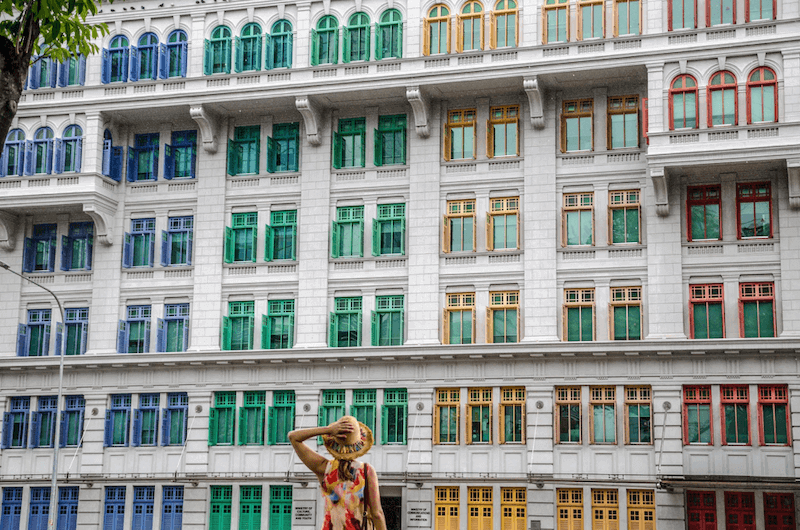
Contributed by Claire from Surf and Scallop
Moving to a new country for whatever reason can be a daunting experience. Having lived in 4 continents, I’ve had to adjust my mindset each time. I’ve had to deal with not knowing a single person when I left for both Canada and Scotland, as an international student. I’ve had to adjust to a new working environment when I moved to London and Singapore for work. Each time I had to turn an unfamiliar apartment into a new home. But most importantly, I had to adjust to a new culture and the lifestyle that came with it.
I’m still currently living as an expat and dare I say I love it.
I also don’t think it will be the last time I uproot myself because I find the experience of being a truly global citizen, gratifying. For those of you who are less enthusiastic about leaving behind what you know, I’ve got a few tips handy.
Three Tips:
First is to always remember that today it’s easy to communicate with loved ones no matter the time zone.
Secondly, most international cities and smaller ones, have expat communities that are accessible on Facebook or Meetup. These communities will be a home away from home.
Thirdly, feel no shame in feeling homesick but then remind yourself of the opportunity you’ve been given to broaden your horizon. Pick up a hobby that you wouldn’t otherwise be able to access outside of your new environment. Or if you want to get back into familiar habits, busy yourself with local activities that you are passionate about and meet new people along the way.
Ultimately, if it doesn’t work out, that’s ok, but my biggest advice is to try to make it work. You’ll look back and remember those obstacles you’ve overcome, making you the person you are today.
12. “I don’t think I realised what door I was opening.”

Contributed by Annie from Londoner in Sydney
I moved from London to Sydney back in 2011 after I spontaneously met my future husband in India (whilst we were both backpacking). He swept me off my feet and before I knew it, my six months backpacking trip has now turned into eight years and counting.
Because the move wasn’t planned, it took me a long time to actually settle in Australia. Although I love life in Sydney, I always thought in my head I’d move back to England with the Aussie in tow.
Moving “home”
So when we again spontaneously decided to move back to England in 2018, I thought I had hit the jackpot, that I’d move back home and feel like me again. The truth is, Australia changed me so much for the better that when I returned home, things weren’t like I remembered. I had gone from spending my time outdoors hiking and going to the beach to suddenly being surrounded by the British rain most days and sitting in pubs like everyone else. I also struggled to keep up a healthy diet in England and ultimately I wasn’t as happy in Australia.
Moving Back Home
After six months, we decided to move back to Australia which was a difficult decision. But, I’m glad we were able to move back to England because it made me finally realise that Australia is my home and I now finally feel settled.
What I’ve learnt over the years is that when I became an expat, I don’t think I realised what door I was opening. Although I have a much better life now, I will always feel guilty for leaving loved ones and it’s something I’ll never get over no matter how long I’m away. Sometimes I wonder what my life would have been like if I had never left England, but I’m glad I did because there’s just something about Australia that brings out the best version of me. That in itself is something I wouldn’t ever change for the world as it’s taught me to love nature, space and be the healthiest person I can be.
The Final Word
I hope you have found some of this advice useful. I know that when I was thinking about moving, I was looking for resources and couldn’t find much. I felt really alone because no one in my world understood what I was going through. Hopefully, this blog post will give you some of the knowledge you are seeking. No matter what, you are not alone in your journey.
If you are thinking about moving overseas, reach out in the comments below. or email me directly through my website. I am happy to help.
Click here if you are interested in reading about How Working Nomads Fund their Lifestyle or about Multicultural Kids: How Expats Raise Their Families Abroad.
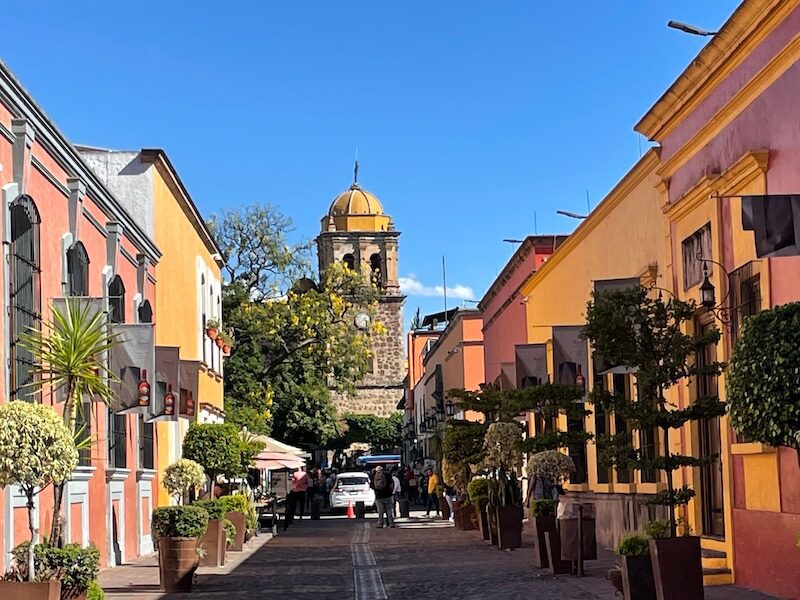


Fantastic round up with great insights and things I had not thought about before despite being an expat for 14 years! Thanks for having me
So great to have your input, Mar! Thank you for everything!
Thanks for the including me in your awesome article! Being an expat is harder than what a lot of people think but it’s definitely worth it!
Hi Anna!
It’s my pleasure.
You are right, it can be challenging and rewarding a the same time. Any plans to come to Penang? I’d love to show you around!
XO,
K
Hi sweetie, wow so much valuable information. A move across the world can be absolutely
daunting, but you great blog has hit all highlights of how to make that dream very possible..
Love you, Mom
Hi Mama,
It was great to learn so much from others who have done it!
XO,
K